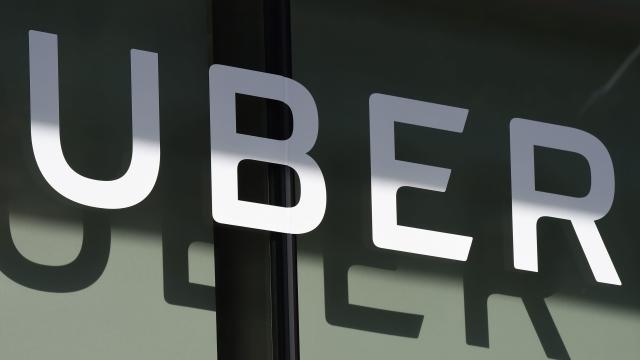Earlier today, Uber CEO Dara Khosrowshahi took a break from overseeing the company’s current legal struggles to roll out his latest argument as for why his company’s thousands of drivers across the U.S. shouldn’t, in fact, be considered employees.
As Khosrowshahi explained in his new New York Times op-ed, the problem isn’t actually the way the ride share giant tries to gut its driver community at every turn, but rather that the current “employment system” mandates that these gig workers are faced with an “outdated and unfair” choice: be an employee with all the benefits that come alongside full-time employment in this country, or be an independent contractor “with more flexibility but almost no safety net.”
Based on Uber’s previous legal battles over the employment statuses of its drivers, you can probably guess that he’s pretty opposed to the whole employer-employee relationship that activists, lawmakers, and his own drivers have begged the company to enact. Rather, he proposes a “third way” ” something where he wouldn’t be required to consider these drivers employees, but where they wouldn’t be straight contractors, either.
The way Khosrowshahi lays out his plan, it sure sounds like these workers would still technically be contractors ” only with a bit more cash to throw around [emphasis ours]:
I’m proposing that gig economy companies be required to establish benefits funds which give workers cash that they can use for the benefits they want, like health insurance or paid time off. Independent workers in any state that passes this law could take money out for every hour of work they put in. All gig companies would be required to participate, so that workers can build up benefits even if they switch between apps.
Did you catch that? Drivers wouldn’t get health insurance outright, or paid time off ” just an amount of money that they could use to buy their own health insurance or draw from in lieu of a day’s work. If your Incrementalist Bullshit alarm is blaring, I don’t blame you: especially when Uber has been staring down the barrel of a U.S. corporate blog.)
These minimal concessions are all positioned within the job flexibility versus job security canard Uber loves to trot out, when realistically it’s the only actor in this scenario dictating the level of flexibility of its own platform. And in classic Uber fashion, Khosrowshahi tries to hide behind his own undervalued workforce’s supposed preferences:
In public surveys over the last decade, the vast majority of drivers have said they don’t want to be employees because of how much they value flexibility.
That link points to an op-ed written by Harry Campbell, who runs the site The Rideshare Guy. The findings of a survey Campbell ran do indeed come to that conclusion based on the responses of 1,000 drivers (out of the 1 million workers Uber estimates operate on its platform.) But Campbell’s own op-ed notes bluntly that [emphasis ours]:
While the majority of drivers work only part-time, there are drivers on the roads today who put in 40, 50 or 60 hours a week and even sleep in their cars. For full-time drivers, it is really tough. They don’t get to take advantage of the flexibility that ride-hail driving affords, and they’re essentially working an employee-like schedule, but without any of the protections. That means no minimum wage, no unemployment insurance, no benefits and no workers’ compensation. I can’t fault these drivers for pushing to improve their lives.
Uber has directly benefited from lax enforcement of existing labour laws, and now it’s trying to rewrite them in its own image while making government itself the fall guy. Government is deeply flawed and even more unpopular, but there is no “third way”: we already have years of horror stories to show what happens when we let Uber dictate the terms.
